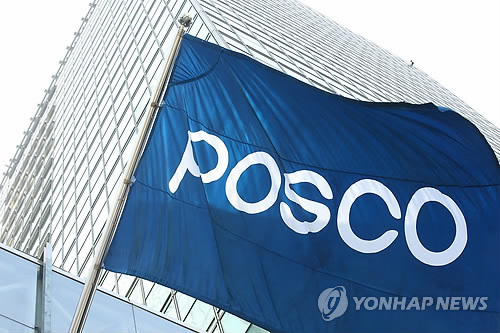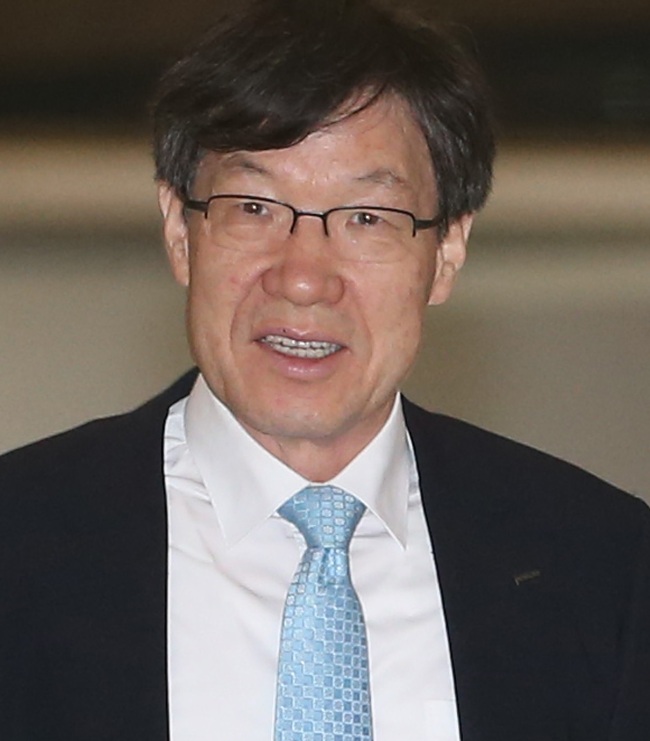The much disputed peak wage system may be gaining more momentum with the steelmaker POSCO and its union agreeing to expand its use.
Although the system is intended to increase corporations’ capacity for hiring young workers, it has been heavily criticized by labor activists.
POSCO, however, has managed to run the system since 2011.
On Wednesday, the country’s largest steelmaker announced that the retirement age would be raised by two years to 60, with the scope of the peak wage system expanded.
Under the agreement, the peak wage system will be applied to workers who stay on beyond the age of 56.
The peak wage system reduces a worker’s salary by 10 percent each year from ages 56 to 58, and freezes it from age 58 until retirement.
POSCO and its union also agreed to implement a more performance-oriented salary system from 2017, and to freeze salaries this year.
POSCO and its union’s agreement could also be a reflection of changes in overall labor-management relations.
 |
POSCO building. Yonhap |
“It was agreed that a large company’s management and union should fulfill social responsibilities, and to actively participate in reforming the labor market,” the company and the union said in a joint statement.
POSCO has been mired in allegations of illegal practices involving its former chairman, Chung Joon-yang. The group announced a set of plans to tide itself over while it regains public trust and sales, which have been hit by an industry slowdown and restructuring in the Chinese shipbuilding industry.
“POSCO has been experiencing difficulties, and the management and the union each made compromises to reach today’s agreement,” POSCO’s management-labor meeting chief Lee Joo-hyung said in a statement.
Despite the government’s position that the system would make the labor market more flexible, labor groups have been in fierce opposition to the wage system.
 |
POSCO chairman Kwon Oh-joon (Yonhap) |
Unlike POSCO, other large companies’ unions such as that of Kumho Tire continue to fight the introduction of the peak wage system.
The tire-maker’s union has been on strike for some time, and the company claims to have suffered 50 billion won ($41.1 million) in lost production.
The issue, however, is far more complex than a simple confrontation of management against workers.
Unlike the Korean Confederation of Trade Unions, which has refused to engage with the government for some years, the Federation of Korea Trade Unions returned to the negotiations that had been stalled for four months.
The KCTU and the FKTU are the country’s main umbrella unions, with the former having a more militant and hard-line image.
Despite the disputes, unions may be losing public support.
According to a recent survey sponsored by a conservative nongovernmental organization, 70 percent of the public support the introduction of the peak wage system.
Like the FKTU’s decision, which was met by criticism even from within its ranks, POSCO and its union’s agreement is expected to have an immense effect on labor-management relations in Korean industry.
“It was agreed that a large company’s management and union should fulfill social responsibilities, and to actively participate in reforming the labor market,” the company and the union said in a joint statement.
By Suk Gee-hyun (
monicasuk@heraldcorp.com)









